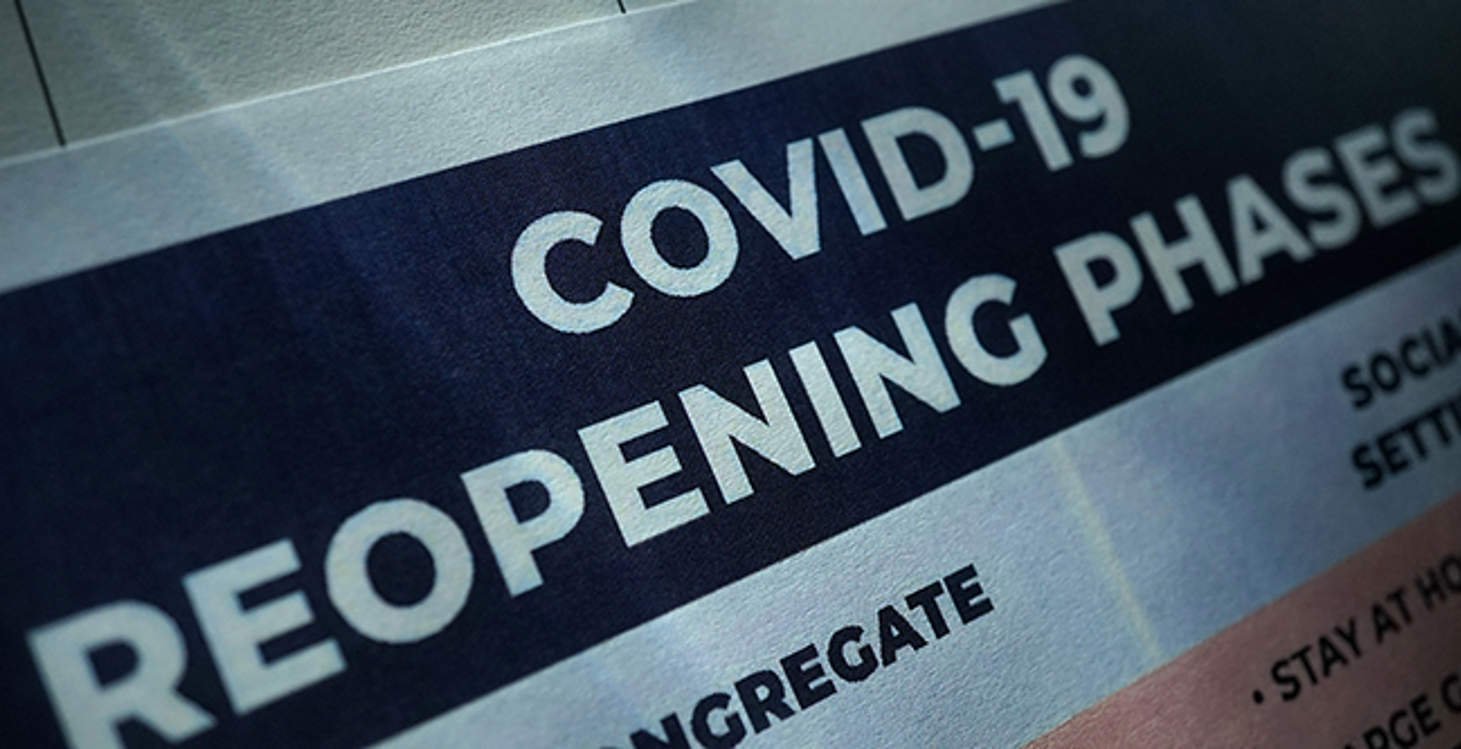
Governance Surveys
Center for Inclusive Governance

Fortune 500 General Counsels Discuss How to Be a Strategic Asset Through the Pandemic
As the country settles into the new routine of social distancing and working from home, and the pandemic begins to show early—if subtle—signs of subsiding, boards and management are beginning to shift their focus from responding to the crisis to reopening their physical plants amid continued safety concerns. This complex process is dependent on many variables, from worker safety to differing county and state standards for reopening. These themes and more were discussed at a recent virtual meeting of the NACD General Counsel Steering Committee.
NACD, along with Sard Verbinnen & Co., convened Fortune 500 chief legal officers and general counsel (GC) to discuss how they are working with their boards to prepare for the next phase of the crisis: reopening and recovery. Participants represented a range of industries, and while solutions varied by sector and geography, the concern they voiced was the same—how do we best ensure worker and customer safety to enable a safe and effective restart?
Crisis accelerates change.
As with most crises, the COVID-19 pandemic has brought about an acceleration of change for organizations. For example, some companies in the midst of a planned digital evolution found themselves compressing their strategies from years to mere weeks. As one general counsel shared, “That pace [of change and work] has been eye opening and inspiring on the one hand, yet on [the] other hand, grueling and draining. It falls to the GC to help ensure that business goals are met in that accelerated change, but that undue risk to the organization isn’t taken and that the business is protected.” Rapid change brings along with it inherent risks that organizations need to consider and manage, including cybersecurity and privacy risks that may not have been factored in during an accelerated response.
Another delegate noted that the role of the general counsel was significantly impacted by the COVID-19 crisis. The general counsel’s progression from legal advisor to business partner has been well documented. However, this crisis has accelerated the speed of that transition, requiring more from the general counsel. As one general counsel commented, “Going through this transition, we have to think through the business implications of the short, medium and long term—we need to be able to show we are good lawyers and good business folks.” This holds true not just for the general counsel, but for the entire legal department, which is now seen as a critical partner in the design phase of the crisis response, rather than just as a review function, as may have been the case during precrisis operations.
Stay focused on a trio of important areas.
As Bruce Haynes, chair of the public affairs practice at Sard Verbinnen & Co., stated, “Company actions are being scrutinized more than ever before. This scrutiny will be even greater as companies reopen and employees return to work. To ensure clarity of purpose and focused energy, general counsel and their companies should prioritize three key constituencies for an effective reopening and return to operations: employees, supply chain, and customers. All three are necessary for a company’s success.”
Beyond the obvious health impacts, this is a consumer crisis, where demand suddenly vanished due to state, county, and city stay-at-home orders.
“The question is how do you reengage your consumers? We need the consumers to drive the business to continue to operate. It’s a balancing act—you’ve got to strike the right balance of not being insensitive in marketing but also reengaging them,” one general counsel opined. That balance will differ significantly by industry, as well as customer model: business-to-business or business-to-consumer. A commonality is the question of ascertaining how a business can spur demand through a relationship with customers. While much of demand generation falls to the sales and marketing teams, law departments can provide assistance through appropriate flexibility and the rapid review of contracts for commitments to customers and suppliers. Businesses whose actions early in the pandemic regarding safeguarding the health of workers drew negative public attention and criticism may have a more difficult time reengaging with customers, while those lauded for their actions related to employee or community support will enjoy the tailwind of positive reputation benefit as they seek to engage with existing or new customers.
In the end, all of the GC delegates spoke to the importance of employee health and safety. One GC shared a focus on ensuring a safe working environment for those employees whose work really could not be conducted at home, primarily employees in research and development. While questions related to the monitoring of employee health are still being debated, the GCs present shared alternate practices to ensure distancing and proper hygiene, including the concept of having A and B teams that alternate days in the office, regular disinfecting of facilities, reconfiguration or restricted use of workspaces, and the separation of critical teams to ensure business continuity. One common theme that emerged in the discussion is how impressed all GCs were with the productivity of the work-from-home environment.
Consider government relations.
Another critical stakeholder in the COVID-19 crisis is the government. From declarations of which businesses were essential to guidelines for reopening, to the potential for new legislation in response to popular will, government has been front and center during this crisis. Companies that may have minimized their interaction with government before will need to focus on their government relations going forward. As one general counsel shared, “The government is in as uncharted territory as business right now. If you approach government as a partner, seeking to educate and support their purpose, companies will likely find a willing and eager partner on the other side.”
Developing those relationships now at the local, state, and federal levels can prove important as the economy moves to the reopening phase and general counsel look for guidance on acceptable policies and procedures to ensure safe workspaces. Looking into the future, government will be under pressure to promulgate regulations and legislation that set practices and, in some cases, may define how industries conduct business for decades to come. Companies are well positioned to help educate regulators and lawmakers as they work through that process and look for input from various constituencies on matters of safety and efficiency.
One size doesn’t fit all crises.
While crisis plans are often talked about as static, in reality they require an incredible amount of flexibility and adaptability from the leadership team. One GC who dealt with both the COVID-19 pandemic and another crisis virtually simultaneously shared, “When you’re going through a crisis, it’s okay to ask for help—you have peers out there that have dealt with similar situations.” In their case—dealing with two career-defining crises at nearly the same time—delegation to their team was key.
Though few companies prepared for a pandemic with scenario planning, the crisis has nonetheless illustrated that training matters. It has become regular practice now for boards and management teams to conduct tabletop exercises across a range of scenarios, from a cyberbreach to an activist attack to a kidnap and ransom event. Taking those exercises seriously and learning from them can make the difference in how effectively an organization responds in a real crisis.
As companies turn their focus toward the next phase of the crisis—reopening and reimagining a new normal—the impacts of COVID-19 will be felt for years to come. From consumer behavior to a remade global supply chain, business will have to determine and traverse the new lay of the land. In the board room, another significant impact may be felt—the board’s approach to risk. Boards are rethinking their role in risk and the role they play in identifying and overseeing risks that may stand out from traditional, core-business risks. In the case of one company, the annual board evaluation survey now contains a question on the director’s view of risk to the company. As another GC shared at the close of the meeting, “The board still expects management to own the risk process, but their interest is as high as I’ve ever seen, and I don’t think they’re ever going to stop asking the hard, but important, questions of management about the known and unknown risks to the business. Those days are gone.”
Note: The meeting was held using a modified version of the Chatham House Rule, under which participants’ quotes are not attributed to individuals or their organizations, with the exception of cohosts.

Marcel Bucsescu is director of credentialing and strategic content at NACD.

Kimberly Simpson is director of strategic content for NACD, leading NACD’s credentialing programs (NACD Directorship Certification™ and NACD Fellowship®), coleading the organization’s Fortune 500 advisory councils, and routinely contributing to NACD member education through blogs and articles. Simpson, a former general counsel, was a US Marshall Memorial Fellow to Europe in 2005.